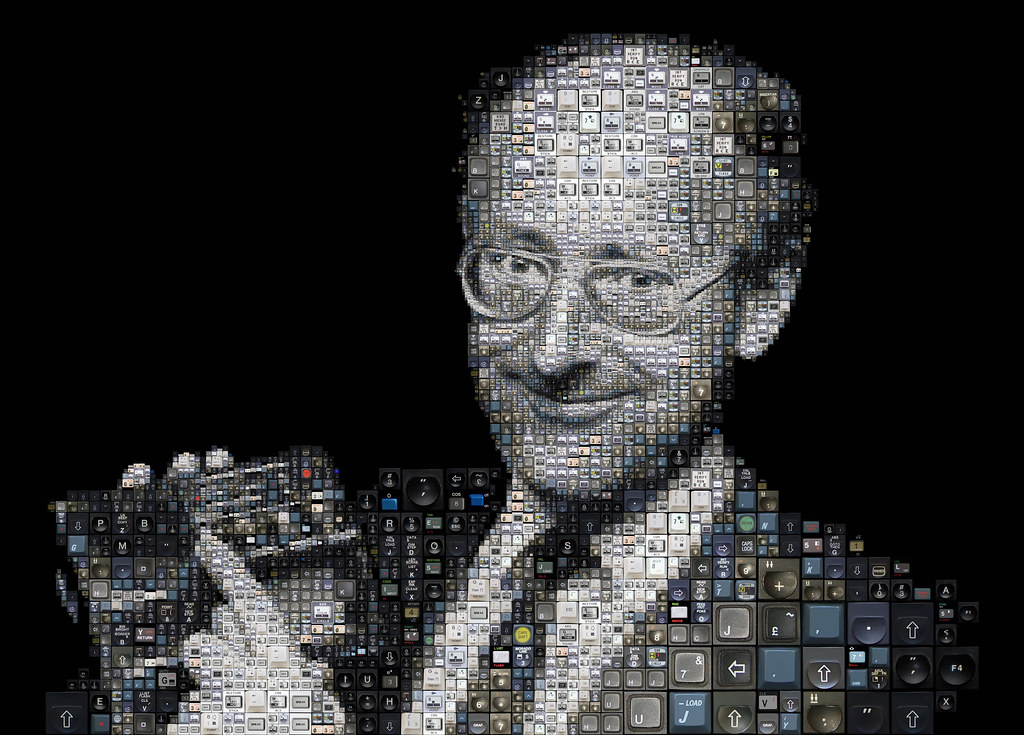The British computer pioneer’s influence can be directly traced to the growth of the UK’s computer industry and the emergence of mobile processors.
“He’d come up with an idea and say, ‘There’s no point in asking if someone wants it, because they can’t imagine it’.”
Pride of place in my technology archive is a Sinclair ZX Spectrum, one of the earliest, and most impactful, computers.
It was created by that rampant genius Sir Clive Sinclair, who died last week aged 81.
Sinclair’s amazing computer, the ZX Spectrum 48K, was launched in 1982 and is widely credited for the UK’s computer industry blossoming as all these teenage computer hobbyists matured.
The dominant type of processor design we all use in our mobile phones is from an originally British firm called ARM, for instance, which many commentators say is linked to the tech-savvy experience of youngsters who had learnt to code on Sinclair’s breakthrough computer. Part of its success was it cost about a fifth of what any of the other computers did at that time.
“RIP, Sir Sinclair. I loved that computer,” Pretoria’s favourite son Elon Musk tweeted. The SpaceX and Tesla CEO, like so many kids of his generation, used the ZX Spectrum.
Sinclair was a kind of Steve Jobs character, who knew his inventions were so ahead of their time that the potential customers didn’t know yet what they wanted.
“It was the ideas, the challenge, that he found exciting,” his daughter Belinda Sinclair told the Guardian. “He’d come up with an idea and say, ‘There’s no point in asking if someone wants it, because they can’t imagine it’.”
Before pioneering this early computer – there were several precursor models – Sinclair designed pocket calculators, which were an innovation given that in the 1970s most calculators were chunky desktop appliances the size of a cash register.
“He wanted to make things small and cheap so people could access them,” Belinda Sinclair said.
Sinclair made his fortune from his first home computer, the ZX80, a revolutionary computer that you could build yourself, or pay more to have it assembled. Launched in 1980, it sold 50,000 units and the ZX81 follow-up sold 250,000. “Within two or three years, we made £14m profit in a year,” Sinclair told the Guardian in 2010. He was knighted in 1983 for his contributions to the nascent home computer industry.
“He was a rather amazing person. Of course, he was so clever and he was always interested in everything,” his daughter said.
Indeed, he tried his hand at making a three-wheeled, battery-powered, electric trike called the Sinclair C5 and the Sinclair TV80, a tiny portable television. Both were huge failures.
He will be known – and loved – for the ZX Spectrum 48K, which fuelled a generation of eager young geeks like me who began exploring these new-fangled home computers. I never owned one of my own – my ZX Spectrum in my archive was a gift from my father-in-law, who kept it in pristine condition all these years. My best friend had a ZX Spectrum and we programmed it and played its games – a precursor to the gigantic gaming industry of today.
Amazingly Sinclair himself wasn’t a big user of his own breakthrough device, the calculator, and always carried a slide rule – another iconic early computing device I have in my archive. My mother Sylvia, the 14th woman architect in South Africa, gave it to me, having used it her whole career. I remember, as a child, watching her use it. She was as fast as using a calculator, as I tested when I was about eight.
The world is eternally grateful to Sir Clive Sinclair, without whom many millions would not have embraced computers as youngsters – nor inspired a generation that grew up to be the first to embrace computers.
This article first appeared in the Daily Maverick.




